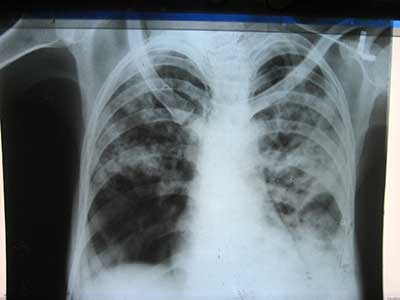
Pulmonary TB (in the lungs or throat) is the only form of the illness that is infectious, but TB can affect any part of the body.
If left untreated, TB is a life-threatening illness. Even delays in treatment can have a devastating impact on a person’s health. But TB is curable with antibiotics. The sooner the illness is diagnosed and treated the better, both in terms of the patient’s health and stopping them from passing it on to others.
A person with untreated infectious TB passes the illness on to 10-15 other people, on average, each year without knowing.
Most people who breathe in TB bacteria do not become unwell. Their immune systems are strong enough to clear TB completely, or hold it in a latent — or sleeping — state. Latent TB can later become active, making someone ill, if their immune system is weakened. A person with latent TB cannot pass TB on to others.
